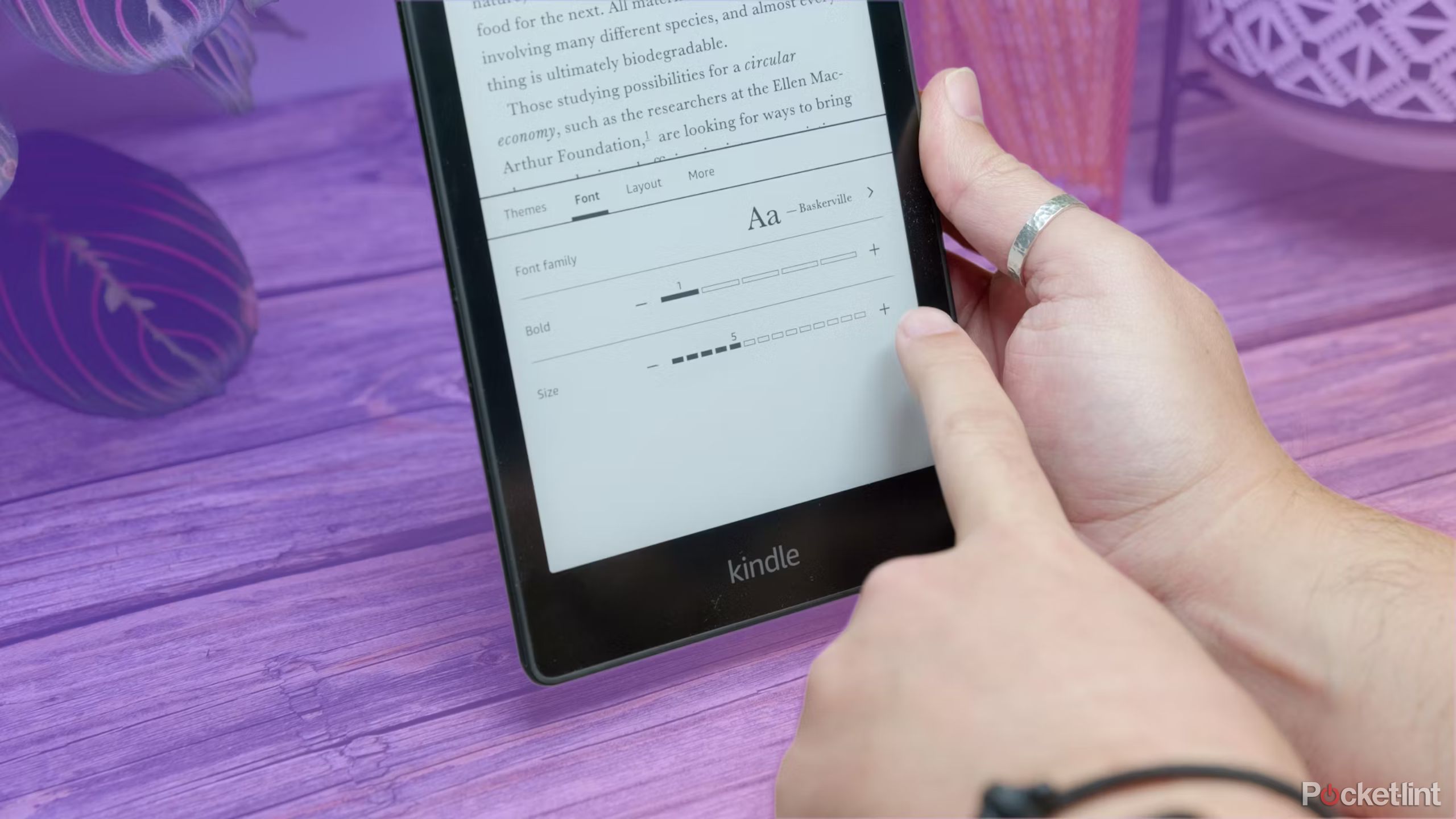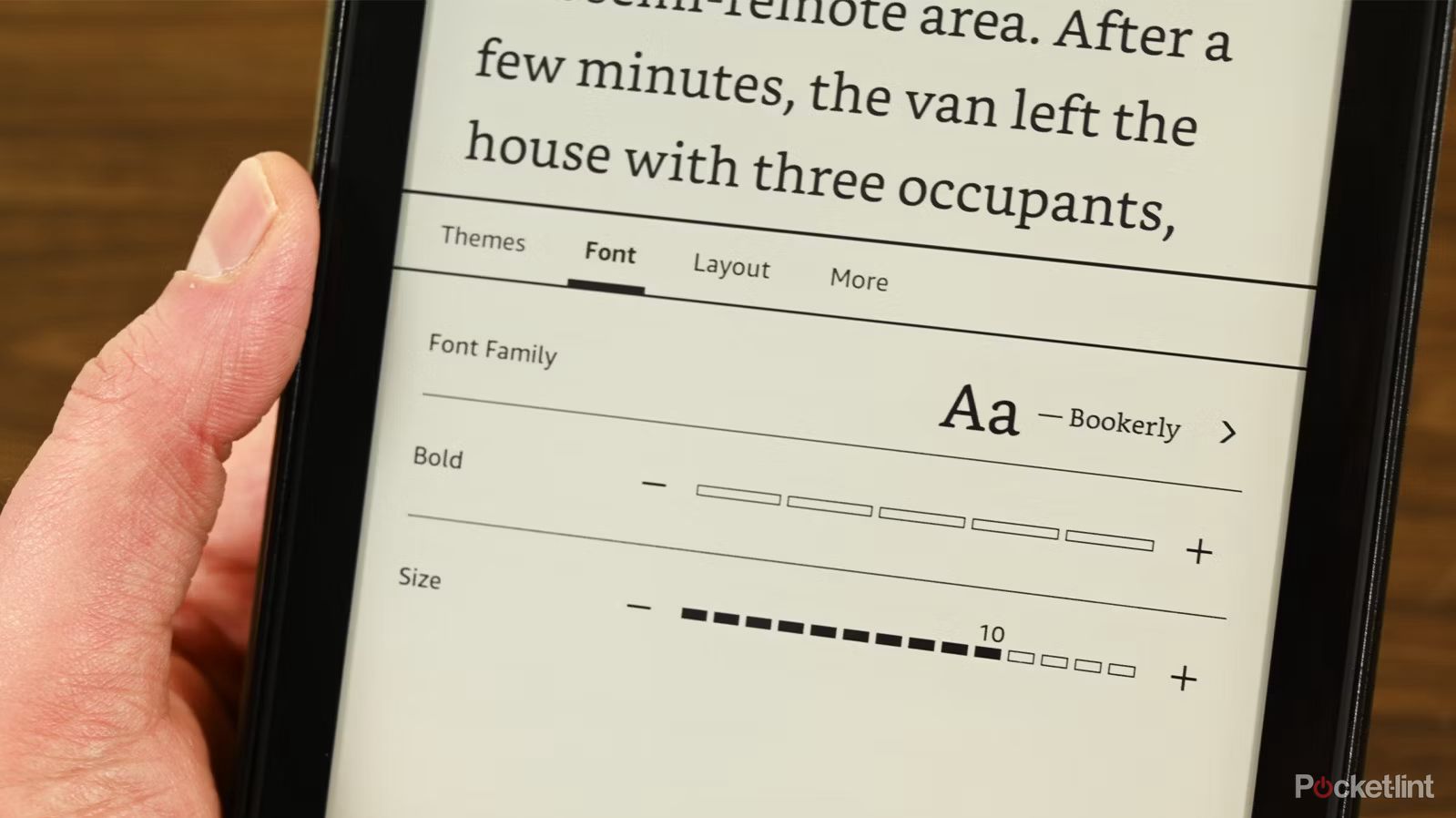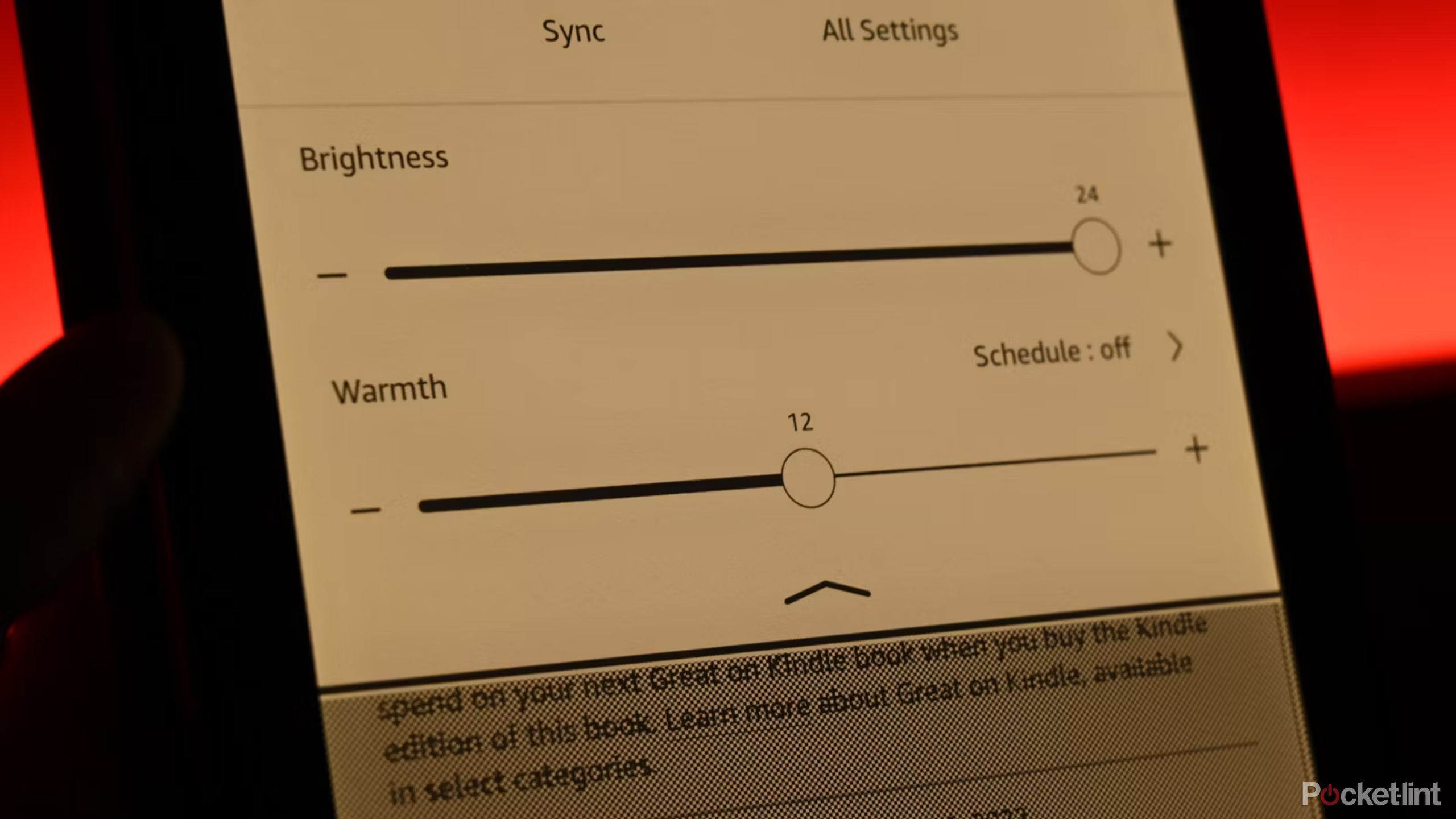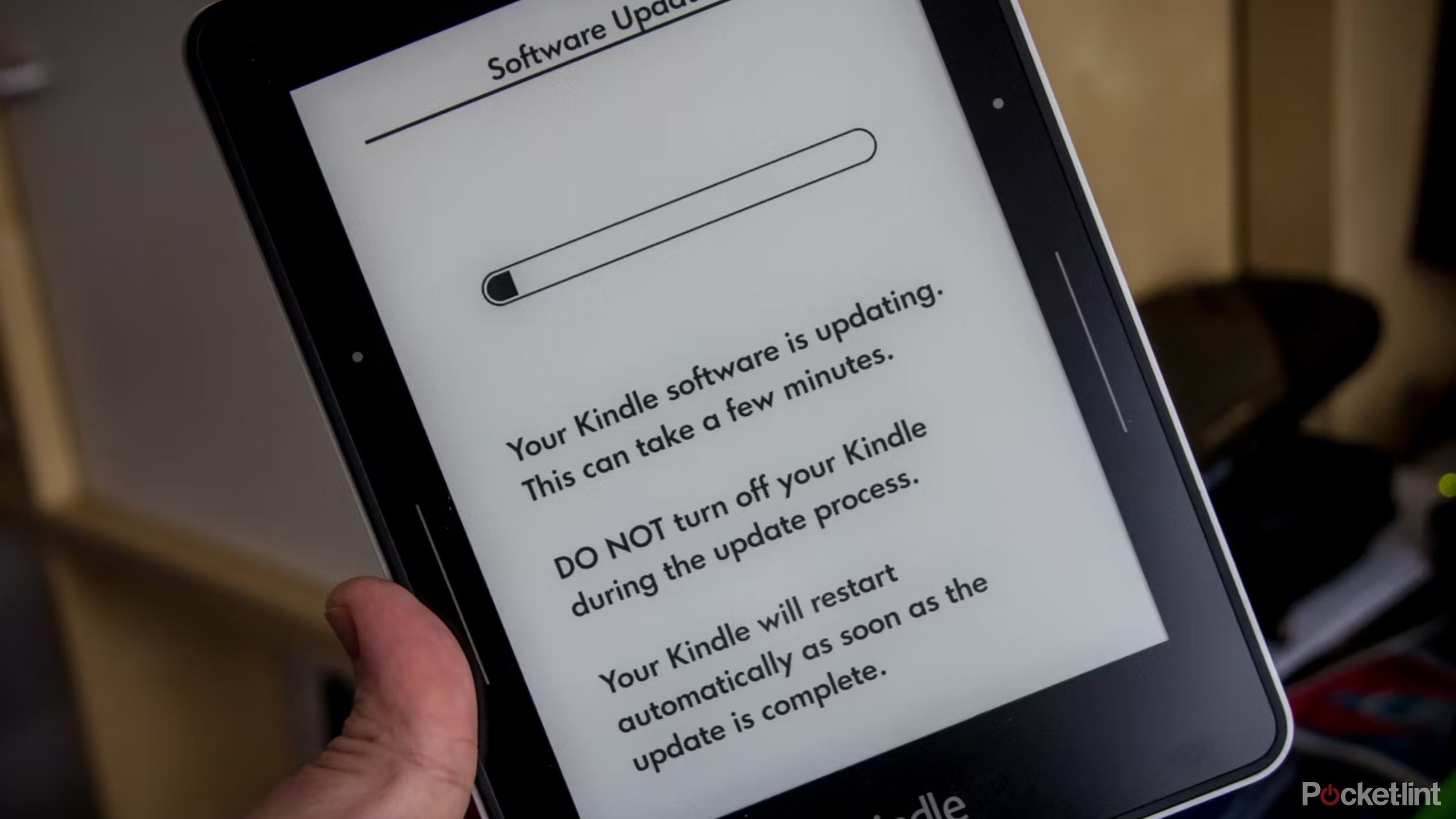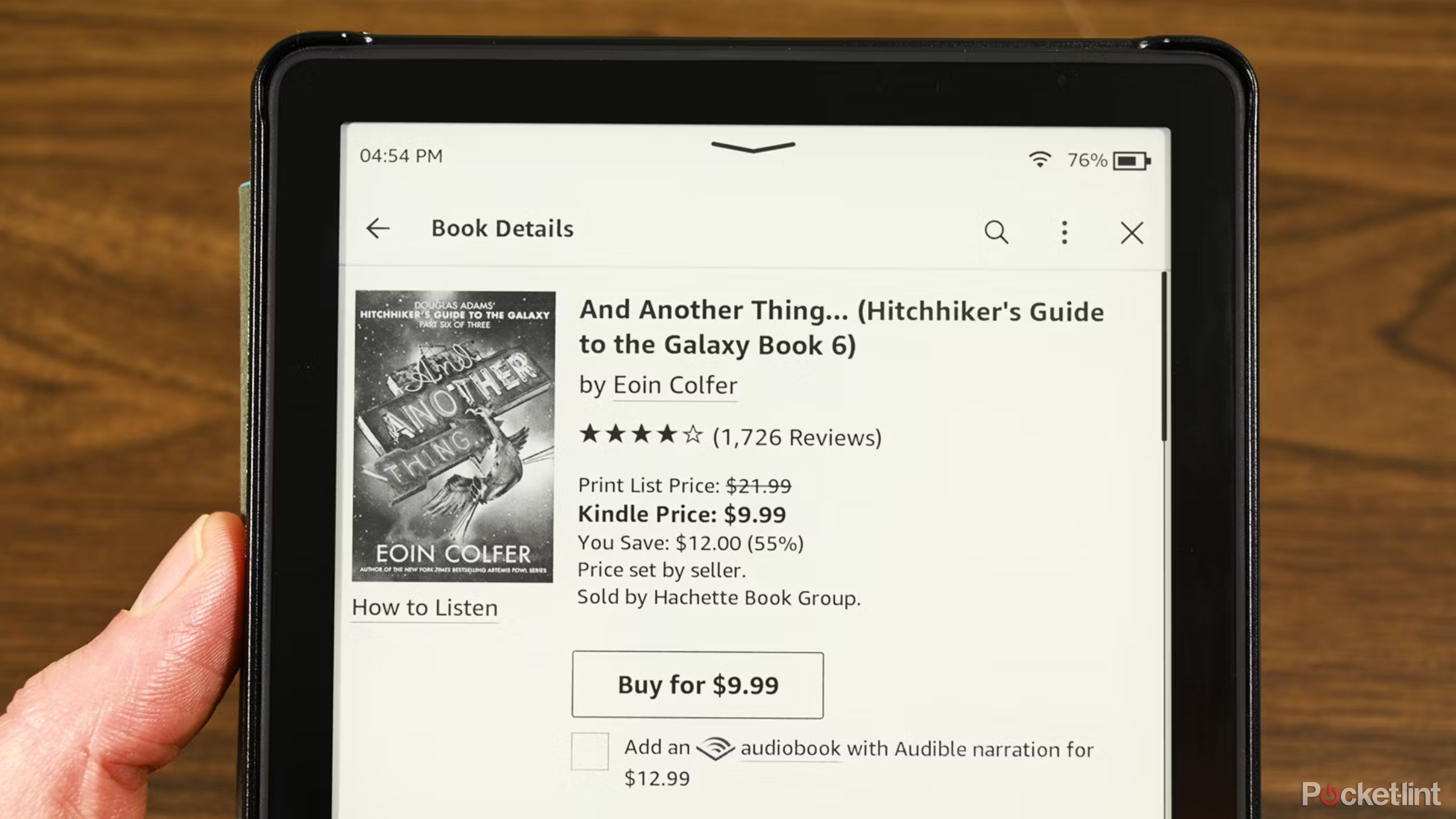-
Amazon Kindle (2022)
Smaller size and lots of memory
Amazon’s entry-level Kindle is a budget-friendly way to get into eReading without sacrificing quality or features. It’s more than good enough for most.
Pros- Compact design and lightweight
- USB-C charging
- Sharp display makes text nice and crisp
Cons- No waterproofing
- No adjustable warmth or autobrightness
-
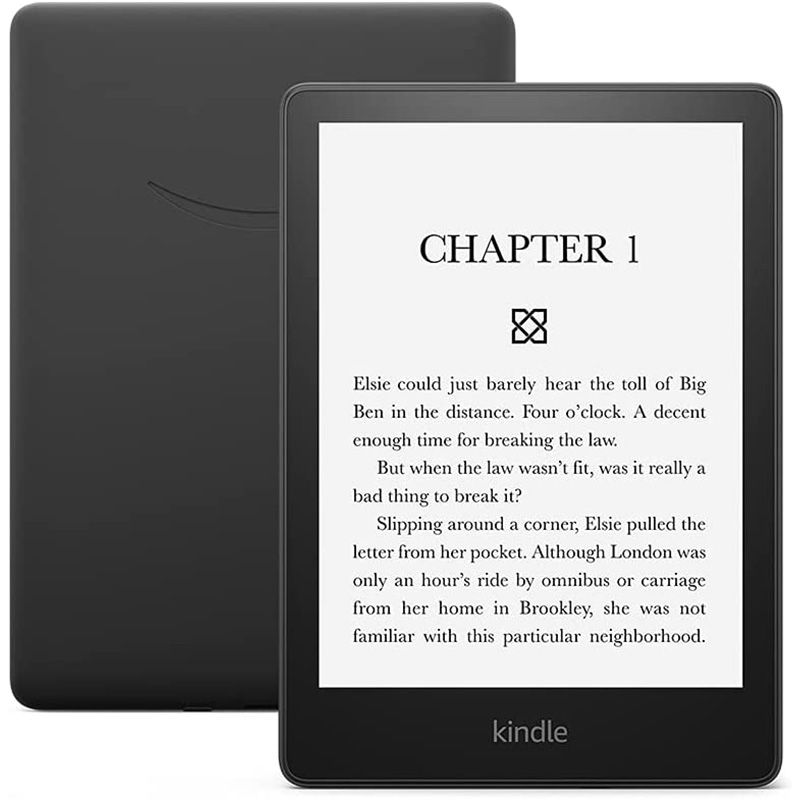
Amazon Kindle Paperwhite (2021)
Premium display and customizations
Kindle Paperwhite offers a 6.8-inch display, illumination, waterproofing and color temperature controls — it’s a great device.
Pros- Larger display than previous
- Bright illumination makes easy reading on the eyes
- USB-C connection
Cons- Page-turning isn’t great for left-handers
- Store and interface are a little slow
The Amazon Kindle series is one of the most friendly and powerful eReader device families on the market. The entry-level device, the 11th generation Amazon Kindle, is a rock-solid reader, especially for its price, and it’s a great way to get into the eReader space. It’s also a serviceable upgrade for folks coming from an older Kindle. One step up from that is the Amazon Kindle Paperwhite, which includes more features for a slightly higher price tag.
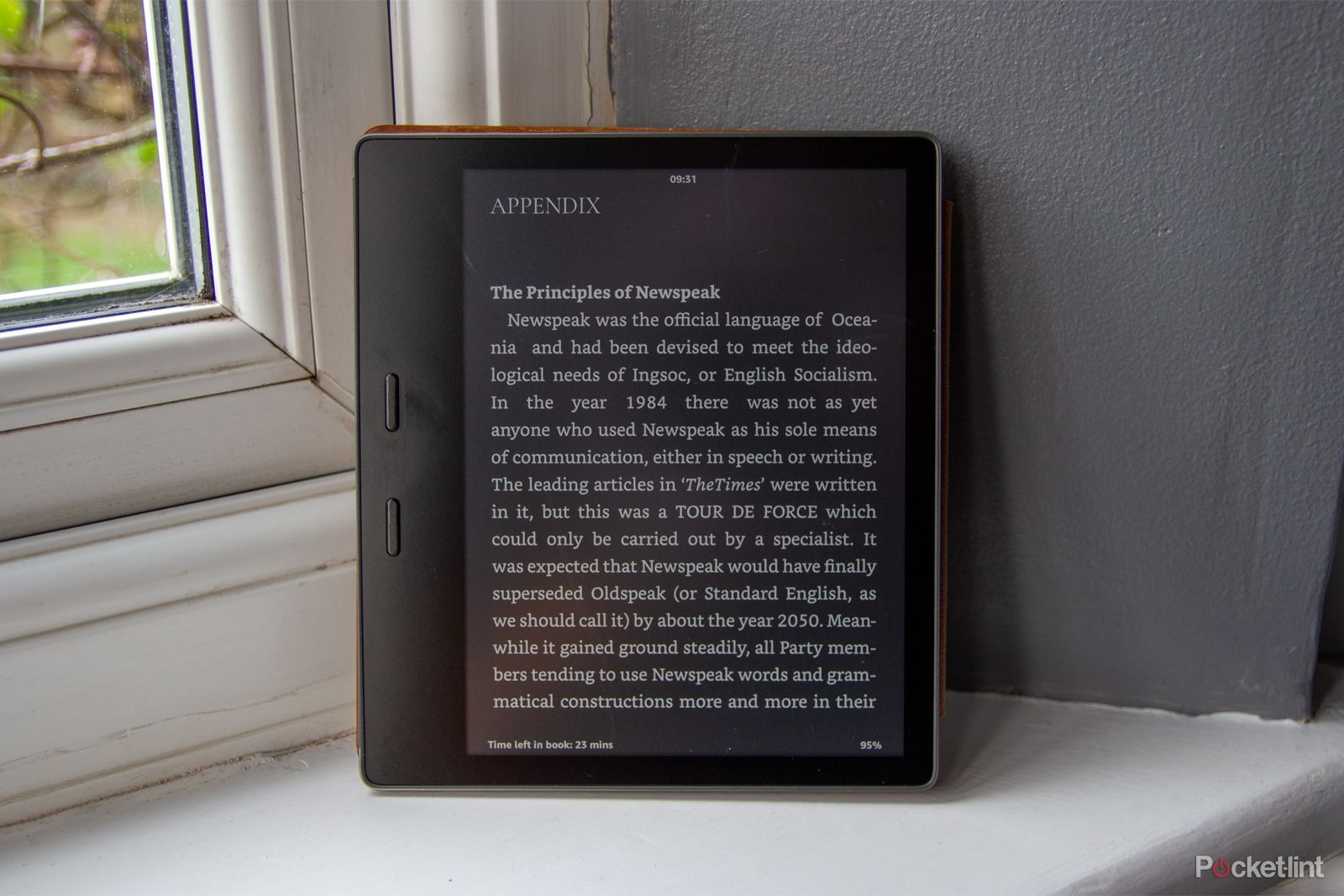
How is reading books on a Kindle and can I stop the display flashing on page turns?
Debating buying a Kindle eReader? I’ll explain if it could replace paper books or an iPad – and how to manage the display settings.
So, which one should you buy? That’s a great question, especially considering that both devices are very similar. We’ll do an in-depth comparison so you can see which one makes the most sense for you.
-
Amazon Kindle Paperwhite Amazon Kindle (2022) Resolution 300PPI 300PPI Screen Size 6.8in E-Ink display 6in E-Ink display Processor MediaTek MT8113 MediaTek MT8113 RAM 512MB 512MB Supported formats EPUB, DOC, DOCX, HTML, RTF, TXT, and most image formats EPUB, PDF, DOC, DOCX, RTF, TXT, and most images Connections USB-C USB-C Battery 10 weeks 6 weeks Weight 205g (8GB) / 208g (32GB) 158g Connectivity Wi-Fi / Bluetooth Wi-Fi / Bluetooth Dimensions 174.2 x 124.6 x 8.1mm 157.8 x 108.6 x 8mm Buttons Power button Power button Storage 8GB / 16GB / 32GB 16GB Front light 17 LEDs and adjustable color temperature 4 LED
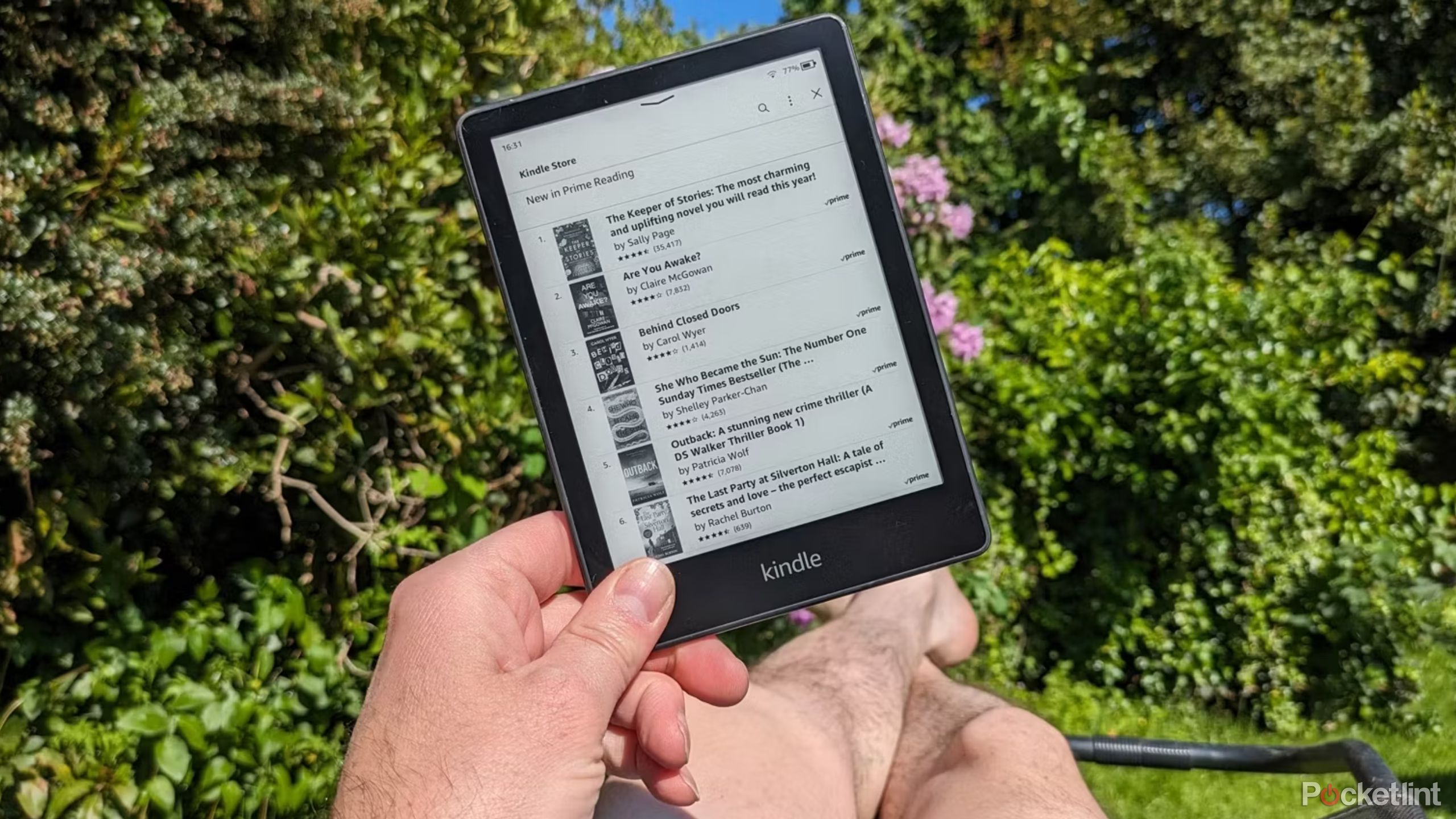 Pricing and availability
Pricing and availability
Netiher is expensive, both are widely available
The regular Amazon Kindle retails for $100 in its base configuration and $120 if you don’t want lockscreen ads. The Kindle Paperwhite starts at $140 for the 8GB model and goes up to $170 for the 16GB model with no lock screen ads. The Kindle Paperwhite Signature edition, which comes with 32GB of storage, costs $190.
Both models are available on Amazon’s website along with select retailers such as Best Buy and Target. They are reasonably easy to find and buy. The only version that might be a bit of a pain to locate is the Kindle Paperwhite Signature edition, which is always available on Amazon, but may be in short supply elsewhere.
Design
Similar designs with key differences
Both models have a demonstrably similar design. The easiest way to tell them apart is by their size. The Kindle Paperwhite sports a 6.8-inch display while the regular Kindle’s screen is six inches even. That makes the Kindle Paperwhite about 20mm wider and taller than its younger sibling. It doesn’t sound like a lot, but you’ll definitely notice it if you hold both of them in one hand.
The Kindle Paperwhite has an IPX8 water-resistance rating, meaning it can withstand an occasional splash near the pool, bathtub, or beach. The standard Kindle doesn’t have the same water resistance luxury.
1:02
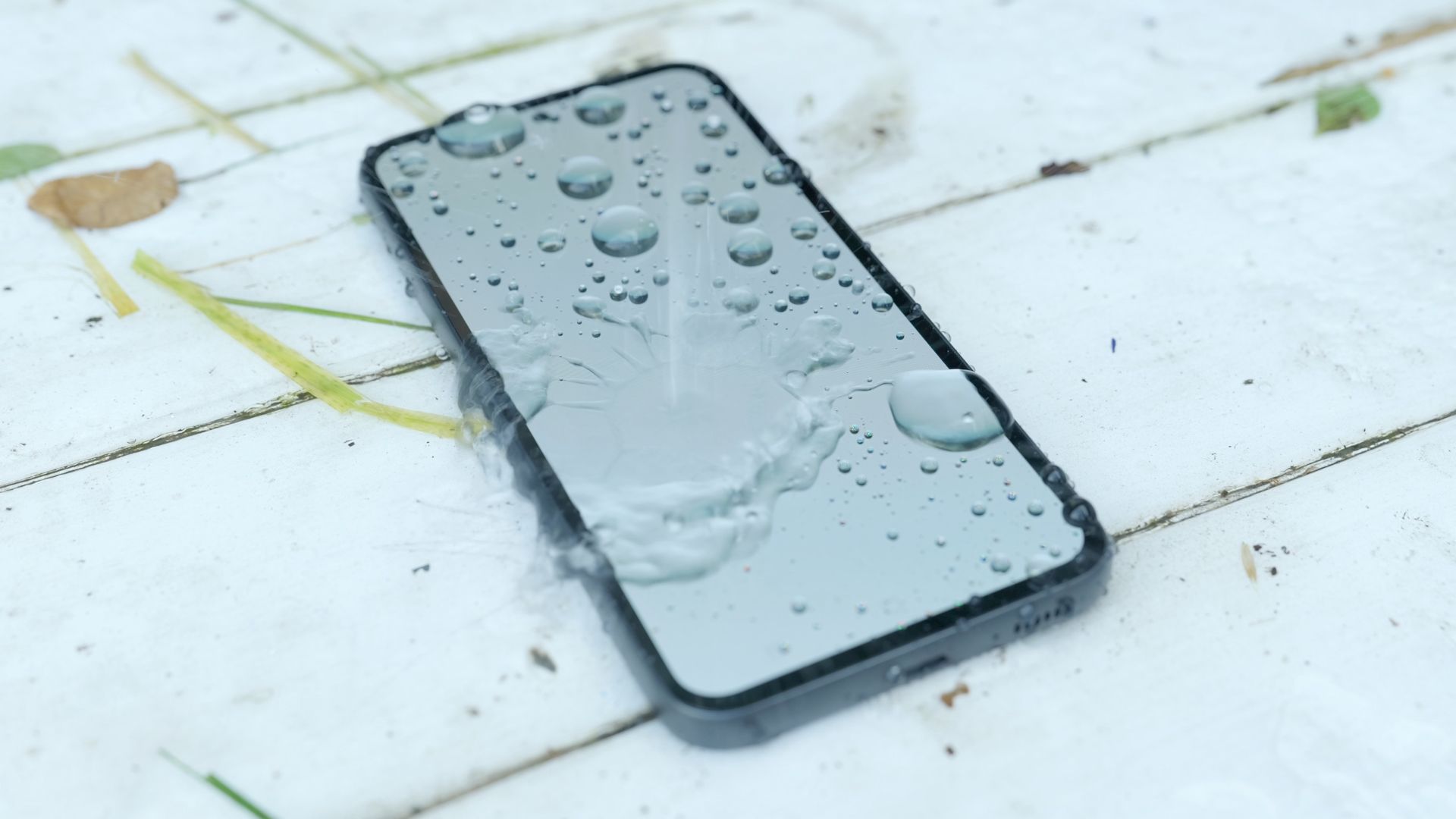
Water and dust IP ratings: What does IP68 really mean?
Your phones and devices come with a code to tell you how waterproof it is – but what do these codes mean?
Other than that, the differences are pretty minor. The regular Kindle sports a black “Kindle” logo on the front and on the Paperwhite the logo is white. On the back of the device, the regular Kindle has a gloss black Amazon arrow logo while the Paperwhite is the same color and texture as the rest of the back of the device. The basic Kindle’s screen is also slightly recessed compared to the flush front of the Kindle Paperwhite.
Everything else is the same. You get the same soft-touch plastic, a couple of color choices, and the screens both have the same texture. Outside of size, actually holding and using them feels virtually identical.
Display
This is where things start to get interesting
While the specs may look the same on paper, this is where the device experience really starts to change. The basic Kindle sports four LED lights that illuminate the screen. You can adjust the brightness, but not the color temperature, so what you see is what you get. The six-inch E-ink display is easy to read in almost all lighting conditions, and you can turn the light up if the room is too dim.
The Kindle Paperwhite has all of those benefits, but an extra 0.8 inches in size along with 17 LEDs instead of four. That means that the Paperwhite is more uniformly lit as a function of having more lights to do it. The LEDs can also be adjusted for a warmer, more red light or a colder, more blue light. That can help you feel more comfortable when reading at night.
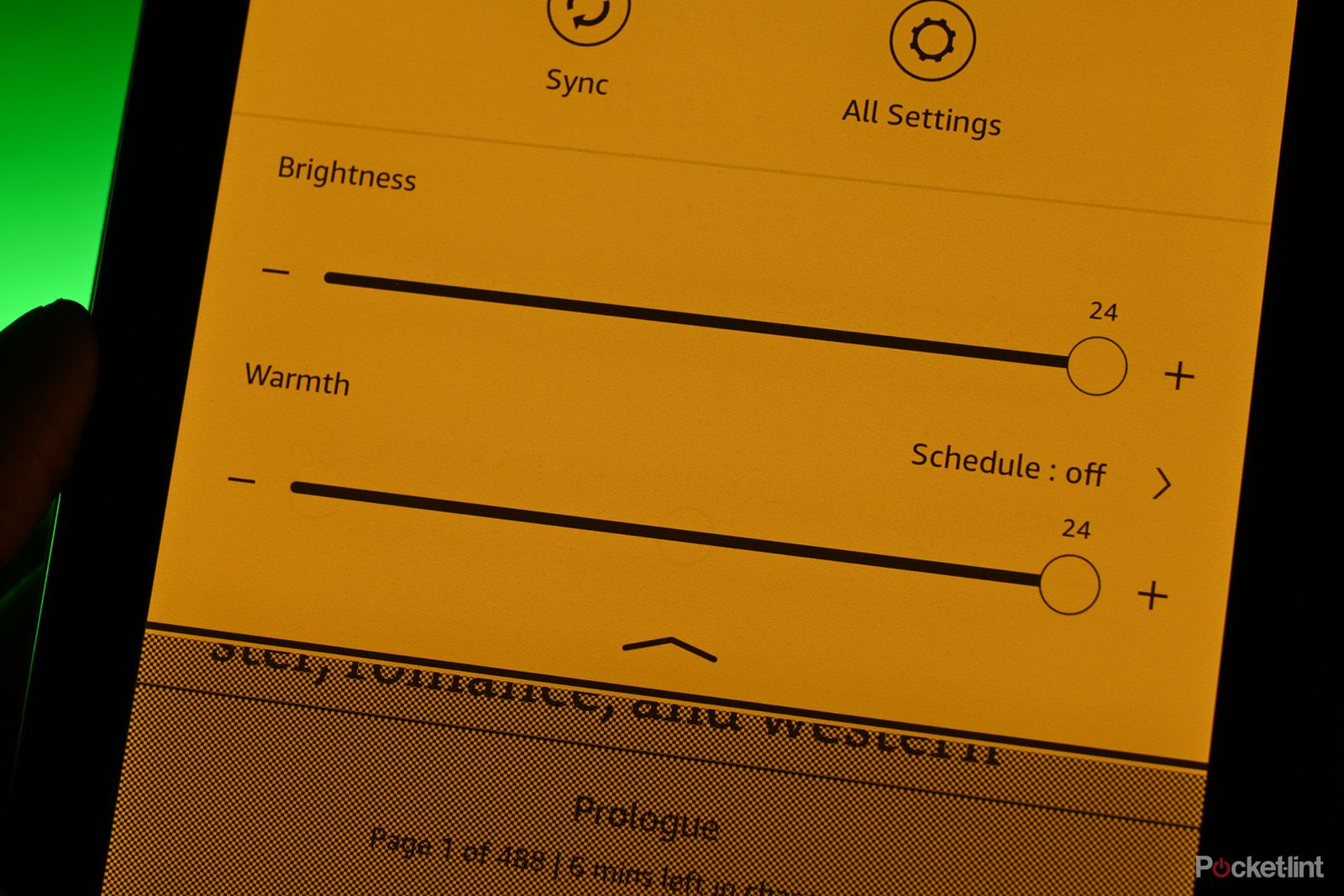
How to schedule warm light on your Kindle Paperwhite (and why you should)
Modern Kindle Paperwhites help relax your eyes by having a warm light setting. Here’s how to schedule it automatically.
In terms of similarities, both screens sport a 300PPI display, so text sharpness on either Kindle is going to be more than good enough for most people, even if you increase the font size. Overall, the Kindle Paperwhite has an objectively better screen in almost every way. The only time the regular Kindle wins is that it’s easier to hold since it’s a smaller device with a smaller screen.
Features
Not many differences here
At their heart, both of these Kindles offer the same core features. They are both designed for reading, with access to the Kindle Store. You also have the option of subscribing to Amazon Kindle Unlimited to widen your reading choices, or opting for Prime Reading if you are a Prime subscriber.
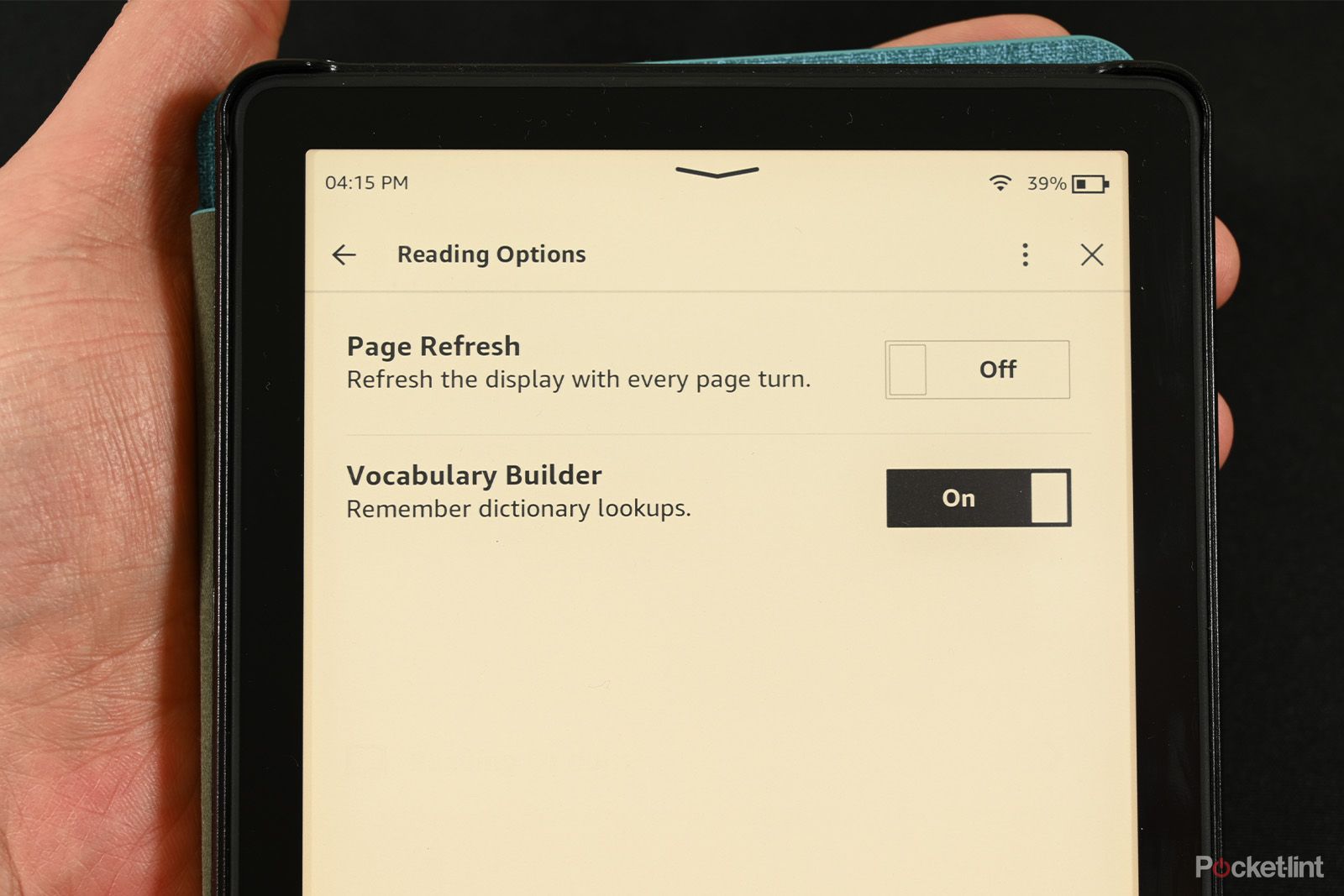
How to find and use your Kindle’s Vocabulary Builder (and why you should)
Kindle allows readers to extend not only their library but also their vocabulary with this cool built-in feature. Here’s how to enable it and use it.
Both Kindles are also capable of Audible audiobook playback, through Bluetooth headphones or a speaker. The Kindle Paperwhite comes in three storage options — 8GB, 16GB, and 32GB — whereas the standard Kindle defaults to 16GB. As the storage increases, so does the price. Although larger storage isn’t always that useful on a Kindle, unless you want offline access to lots of Audible books, which are larger files. Regular book files are small, so 8GB should be enough for most users anyway.
In terms of software, both Kindle devices are virtually identical. They both have advanced features like the Vocabulary Builder along with basic settings like font size, margin size, and brightness settings. In fact, using those features is the same on both devices. The Kindle Paperwhite’s interface has an extra slider for the coldness or warmth of the backlighting.
Both charge through USB-C, forgoing the need to carry an extra cable just to charge your Kindle.
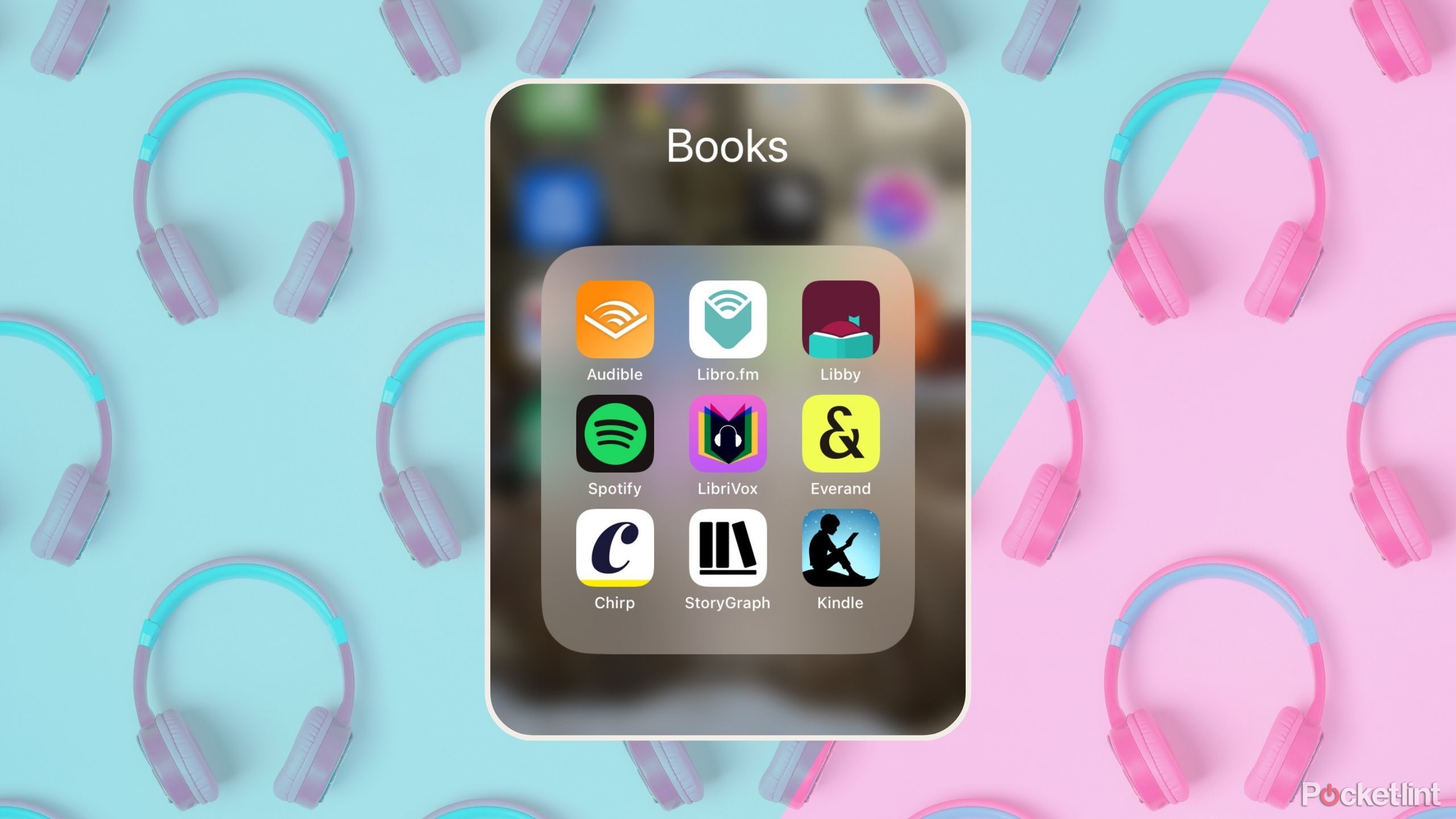
7 audiobook apps worth trying: Audible isn’t your only choice
I’ve compared the cost, catalogs, and UIs for the top audiobook apps, including Libby, Libro.fm, Chirp, Everand, LibriVox, Spotify, and Audible.
Battery life and performance
More of the same
In terms of performance, both devices are identical. Both sport 512MB of RAM and the same MediaTek processor. Thus, page turns, browsing your library, downloading books, and adjusting the settings should take the same amount of time on either device. Buying the more expensive Kindle gets you better backlighting and a larger screen, but not extra performance.
Somewhat surprisingly, the larger screen doesn’t seem to affect battery life like it does on smartphones. The base Kindle is rated to last for six weeks, assuming 30 minutes of reading time per day at a screen brightness of 13. Under those same conditions, the Kindle Paperwhite is rated to last 10 weeks. Either way, the battery lasts a good, long time.
The bottom line: which Kindle model is best?
For your money, the Kindle Paperwhite will go further. It has superior battery life, a larger screen, more LEDs, adjustable color temperature, and more storage options. Plus, the IPX8 waterproofing on the Kindle Paperwhite adds a level of anxiety relief when reading near various bodies of water. You’ll pay for the privilege, but honestly, the price difference between a 16GB base Kindle and a 16GB Paperwhite is $40. The above goodies are well worth that price.
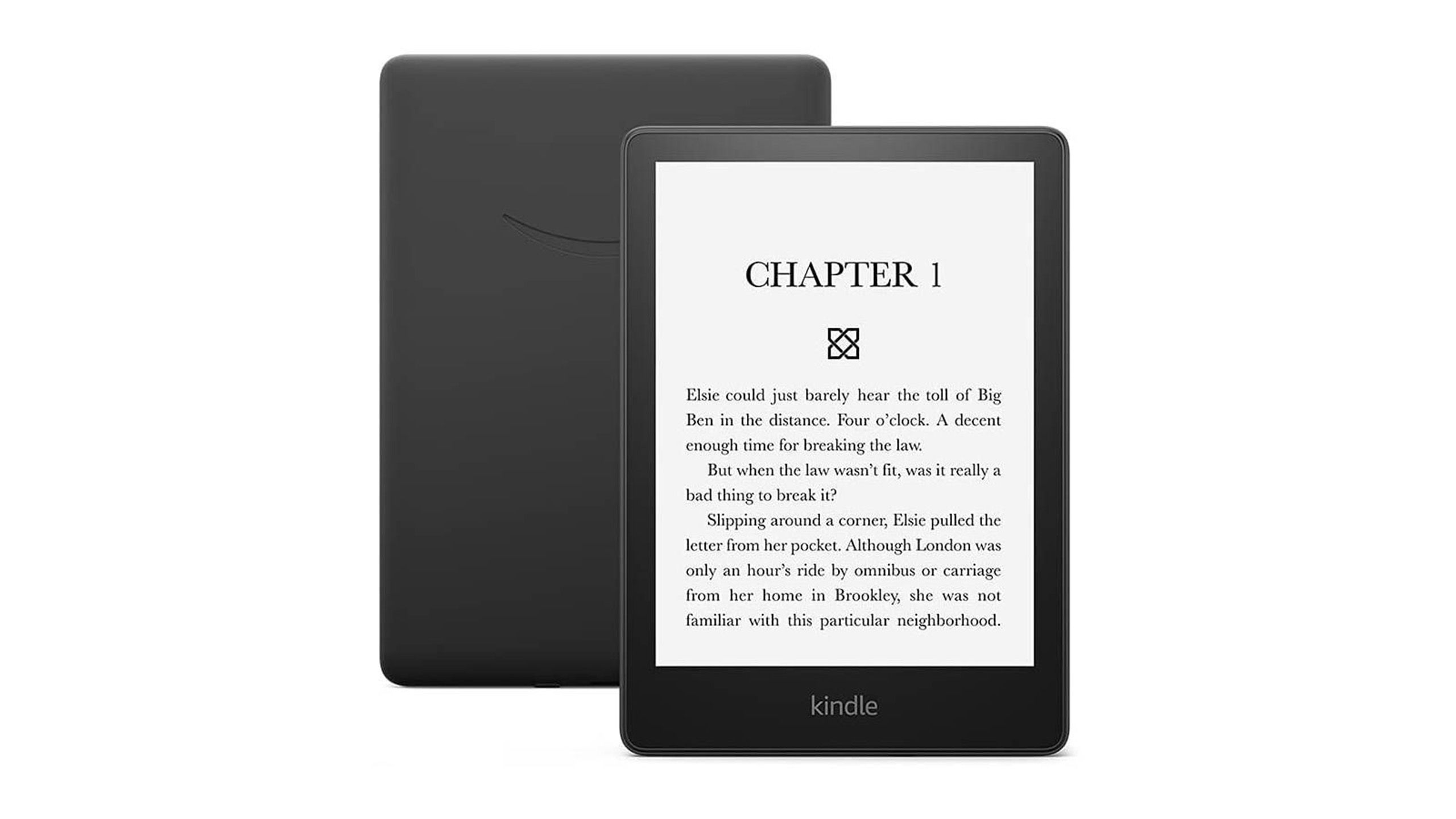
Amazon Kindle Paperwhite
Editor’s Choice
That doesn’t mean that the basic Kindle is bad by any stretch. It’s smaller, which means it’s easier to hold in one hand, and the fact that it only comes in 16GB models means you’ll have plenty of storage for your books regardless. Plus, it also has backlighting and, having owned one myself, I can tell you that the blue light isn’t at all harsh as long as you don’t crank up the brightness in an otherwise pitch-black room. You can save yourself $40 by going with the cheaper option. Just don’t drop it in the bathtub.
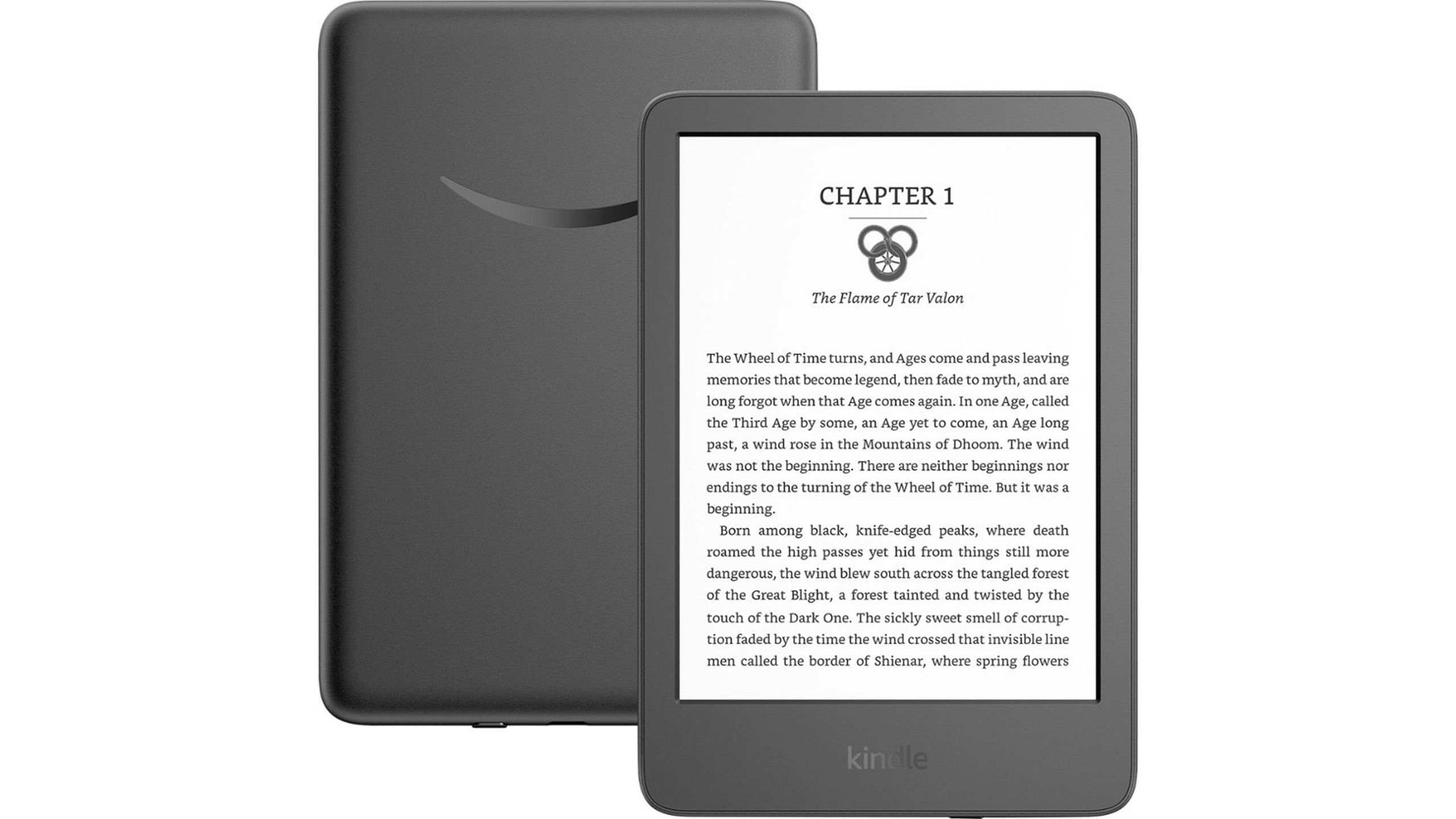
Amazon Kindle (2022)
Still a great pick
Whichever you choose, the ability to carry around a whole world of reading material in your pocket makes the Kindle a great investment. The illumination means you can read in all conditions, making this a great companion in bed or when on vacation. Everything hinges around the Kindle Store, however, so watch out for offers on Kindle Unlimited to give you access to even more books.
Trending Products

